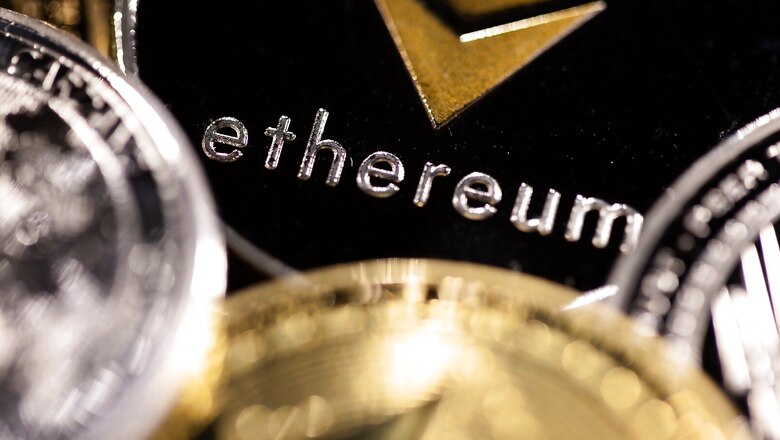
views
The crypto-verse is all set for the much-anticipated Ethereum merge, which will begin on September 6. Building up to the merge, ETH prices, currently at $1,631.43, have also been steadily rising by about 4% over the past 24 hours.
It is a mega event, given that even a small glitch could adversely impact about $64.8 billion worth of value locked in the popular blockchain, not to mention its reputation. But among all this, is there anything that investors need to prepare for?
CONTENTIONS OF A HARD FORK
In case everything goes according to the book, investors need not fear the taxmen. However, they enter the picture only in case ETH goes through a hard fork. Essentially, this involves splitting one cryptocurrency into two distinctive ones. Think ETH and ETH Classic, 2016.
This usually happens when members of the concerned crypto community (ETH, in this case) want to disassociate with the current blockchain. This could be due to many reasons — the chain’s shortcomings, speed, or inadequate functionalities.
When this happens, investors of the original blockchain receive tokens from the new chain as well. However, miners have to take a call as to which blockchain would they continue operating on. Now, ETH is completely shifting to a proof-of-stake (PoS) model, which will consume 99.95% less energy.
This has left proof of work (PoW) miners disgruntled, given that they are heavily invested in the infrastructure needed to run the energy-devouring PoW mechanism. Then there’s the case of their rewards being scaled back significantly.
The PoW chain used to pay about 13,000 ETH to these miners on a daily basis. Once ETH migrates to PoS, the validator payout will fall by 88% to 1,600 ETH daily.
Explained Edul Patel, CEO and Co-Founder, Mudrex, A Global Crypto Investment Platform, “Previously, miners were verifying the transaction process in PoW. Now, miners need to adopt the PoS change. If that happens without any issue with validators taking over, there would not be any tax as tokens of PoS will be considered the same assets as that of PoW.”
What about regular investors?
Is there anything regular investors should look out for?
In the event of a hard fork, ETH investors will be airdropped tokens from the newly forked chain, too. This will subject them to a 30% tax on their value, as per India’s present crypto legislation.
However, Archit Gupta, Founder & CEO, ClearTax, highlighted that there is nothing to worry about. Most DeFi projects on the chain support the merge. And that potentially translates to massive support, since 80% of all decentralized applications in the ecosystem are based on the ethereum blockchain.
“If you own some ETH, be it in a wallet or an exchange, you don’t need to do anything. The transition involves certain risks. However, if all goes well, the transition will just happen, and ETH will continue to function as before, without any downtime.”
“The transition will not impact the investors holding ETH, whether the Ether price moves upward or downward. As per the income tax rules, the tax event would occur only when there is a transfer of cryptocurrency. The merge will only upgrade the Ethereum platform, and there will be no change in the investor’s ETH ownership,” he continued.
Shashi Mathews, Partner, IndusLaw, concurred. “Given that the merge is not resulting in the issuance of any new crypto coins to users, it is unlikely that there will be any tax implications on account of this event, in the hands of the users. That said, all major exchanges have been preparing for this once-in-a-lifetime event in the cryptosphere. The system itself has been subject to various tests and delays to ensure no blockage of funds or any disruptions in the blockchain. However, users should be wary of any offers to increase their funds or double their ETH during this period.”
However, Raghav Kumar Bajaj, Counsel, Khaitan & Co, feels that investors should be wary of the VDA provisions here, in case a hard-fork happens. “The much awaited ETH Merge will be important for investors from an income-tax perspective also. The primary considerations to be examined in this regard would be whether this event will fall within the ambit of a ‘transfer’ for the purpose of Indian Income-tax law and whether it will result in the receipt of a new token by the investors or not,” he signs off.
Read the Latest News and Breaking News here


















Comments
0 comment